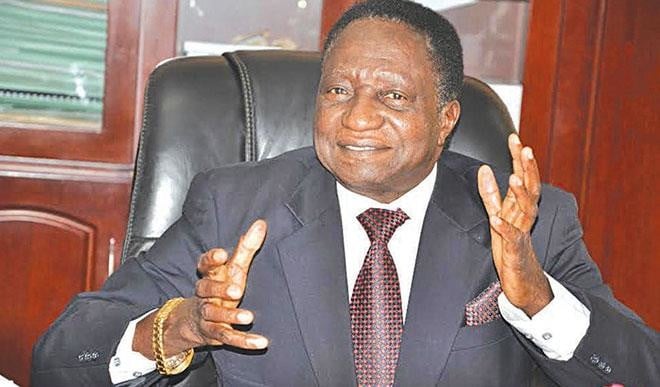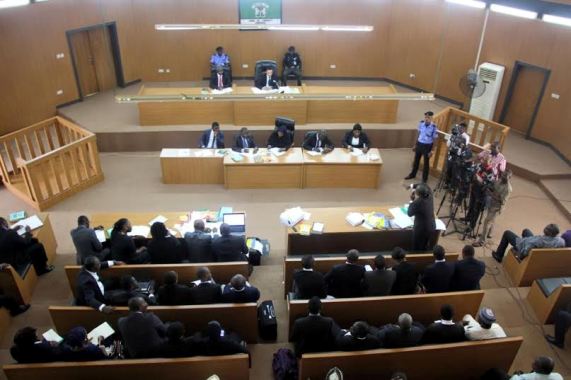BY ADEBAYO ALAO
Following the conduct of the 2016 Unified Tertiary Matriculation Examination (UTME) by the Joint Admissions and Matriculation Board (JAMB), various allegations have been flying around. From the outright ridiculous to the downright untrue, attempts have been made to discredit the Computer-Based Test (CBT) mode of the examination, which replaced the Paper and Pencil Test (PPT), with some protesters even calling the Chief Executive/Registrar of the Board, Emeritus Professor Dibu Ojerinde, unprintable names and calling for his sack.
Is the attempt to discredit CBT and thereby force JAMB to return to the PPT mode – which many have agreed encourages malpractices and which the JAMB Registrar once noted was consuming time, human and financial resources – worthy? Are the protesters justified to ask for the sack of Professor Ojerinde? This is a man who has, in the last nine years at JAMB, changed the face of the Board and brought a relatively high level of credibility to its examination and, indeed, deployed technology to public examination in such a way that the country’s education sector now has hope. What exactly should be the way forward for the Federal Government, which has said the PPT mode would be restored? These and many more were the questions that came to mind in the midst of the orchestrated protests and name-calling that have greeted the 2016 UTME.
For those who had the privilege of monitoring the conduct of the examination, whatever challenges the examination had, were not in its organisation. In fact, JAMB deserved commendations for the effective deployment of Information and Communication Technology for the examination, which saw to most candidates sitting for the examination in safe and relaxed atmospheres devoid of external influences and disturbances. Of particular interest was the organised manner in which the examination was conducted and the zero allowance for interference or avenues for examination malpractices, as parents and wards as well as external materials were far-removed from the venues of the examination.
The challenges had begun when the Board began the release of the results only about 24 hours after the examination. Some candidates claimed they had different versions of results within hours while mischief-makers went to town with claims of marks being added for some candidates. Some had even gone ahead to claim that JAMB was arbitrarily adding and subtracting marks after the candidates had finished the examination. But can these claims be right? Thank God that the House of Representatives’ Committee on Education has eventually clarified the House’s position and passed a vote of confidence in CBT. The statement of the Committee’s chairman, last week, that Nigeria could not afford to return to PPT, more than anything, vindicated Emeritus Professor Ojerinde, whose brainchild the CBT is.
Advertisement
Now, if, indeed, the spurious allegations and sponsored protests have any merit, the question those behind the protests should answer is why they want to set Nigeria backward by two decades by calling for the cancellation of CBT and why the needless calls for the sack of the JAMB Registrar. If, indeed, there were challenges with the 2016 UTME, wouldn’t it be more important to address the challenges rather than calling for the cancellation of CBT and the sack of the man who brought it to JAMB.
A look at JAMB’s operations of the CBT, since its introduction, would reveal that the Board has been adhering to the International Test Commission’s 2005 version of the International Guidelines on Computer-Based and Internet Delivered Testing. In fact, the Board introduced a mechanism to aid candidates who might have challenges with the testing by employing the managed mode of testing, which allows human supervision and control over the test-taking environment. Candidates who took the 2016 CBT would testify to having access to centre supervisors who readily helped with any difficulty relating to the systems and the testing procedure. Therefore, when the protests and the calls for Ojerinde’s sack erupted, one was forced to ask who those behind the protests are. Could it be true that they are the cabals that specialise in malpractices, whose businesses have been destroyed by the JAMB Registrar and his policies at the Board?
Interestingly, South Africa first developed Computer-Based Testing in the 1970s and it has been perfected and deployed over the years and the country adapted the guidelines drawn up by the International Test Commission. Today, that country has gone miles ahead in conducting credible public examinations through CBT. However, Nigeria, which is obviously laid back in terms of technology, only had the opportunity of CBT as late as three years ago when JAMB introduced the mode. When that decision was taken; experts had described it as a blessing to the education sector. It should be noted that many universities had begun to conduct Computer-Based Tests for intending applicants. Apart from Nigerian universities, several Nigerian candidates have had to face international examinations conduct via the internet such as SAT and TOEFL, among others, with many of them only coming in contact with the CBT mode of examination for the first time when they wrote those examinations. Therefore, when JAMB introduced CBT, not a few people had thought it adequate as a testing ground for future examinations in the Computer-Based mode.
Advertisement
Now, with the position of the House Committee on Education that there would be no going back on CBT, there is hope that the gains recorded by the policy would not be reversed because it had teething problems. But in order to correct anomalies and make the system more efficient, JAMB, the Ministry of Education and others should evaluate the challenges and complaints about the CBT and subsequently improve on it to deliver more efficiently. The Federal Government and the National Assembly must also look at the endless possibilities available in CBT and create legal frameworks to support this mode of examination, so that rather than rue the challenges of the 2016 UTME, we can relish the potential of CBT for the future.
Alao writes via [email protected]
Views expressed by contributors are strictly personal and not of TheCable.
4 comments







We are not saying Jamb should reverse to PPT. what we want is our real scores. its very obvious that this year jamb is marred with irregularities. Jamb can’t continue to be playing on our intelligence. I scored 257 last year with less preparation but this year that i prepared well Jamb said i got 180. I”‘m very sure this is not my real results. Am not the only one complaining but millions of candidates nationwide.
It’s high time Jamb admits to their errors.
#Saynotojambfakeresults
pls jamb should send us our real score the text i received stated 2015 instead of 2016 showing that jamb used last year software.
Your comment..pls what are they doing on our issue.why are they bring irrelevant matters.we are complaining on jamb score I received 205 first and later 113 d other day 112 after that 153. my father spent more than 100 thousand on my tutoruial and other expenses,my dream of studing petrol chemical engineering is shaking(crying).help me o mayb we should write again or they should remark.but if my score did not change from 153 we will meet in heaven and i believe God is watching them all.it is a disgrace now.
we need our real result